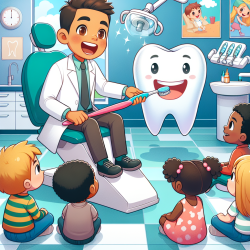The impact of armed conflict and displacement on children is profound and far-reaching. As a practitioner working with these vulnerable populations, understanding the effects of toxic stress and implementing effective strategies to mitigate its impact is crucial. The research article titled "Mitigating Toxic Stress in Children Affected by Conflict and Displacement" provides valuable insights into this pressing issue.
Understanding Toxic Stress
Toxic stress refers to the prolonged activation of the stress response system in the absence of protective relationships. It can lead to detrimental effects on children's health and development, including epigenetic changes that affect neurodevelopment and long-term health outcomes. Children living in conflict-affected areas or displaced from their homes are particularly susceptible to toxic stress due to the multitude of stressors they face.
Key Strategies for Practitioners
The research highlights several strategies that practitioners can adopt to mitigate the effects of toxic stress on children:
- Community-Based Interventions: Implementing group mental health treatments can expand access to care in regions with limited mental health professionals. Leveraging community strengths can help reach more children effectively.
- School-Based Programs: Schools can play a pivotal role in providing a stable environment for children. Trauma-informed teaching practices can help buffer students' stress responses and improve educational outcomes.
- Family-Based Therapies: Engaging caregivers through therapies like carer-child interaction therapy can improve children's resilience and reduce stress responses. Strengthening family support systems is vital for long-term recovery.
- Personal Therapies: Techniques such as mindfulness-based therapies and biofeedback can decrease psychological distress and enhance well-being among children affected by conflict.
The Role of Online Therapy Services
TinyEYE's online therapy services offer an innovative solution for schools aiming to support children experiencing toxic stress. By providing accessible mental health resources, practitioners can deliver timely interventions to students in need, regardless of geographical constraints. This approach not only addresses immediate needs but also fosters long-term resilience among affected children.
The Importance of Continued Research
The research underscores the need for continued investigation into effective interventions for children affected by conflict and displacement. Practitioners are encouraged to stay informed about emerging studies and adapt their practices accordingly. Collaboration with researchers can also provide valuable insights into refining intervention strategies.
Mitigating toxic stress in children affected by conflict and displacement










